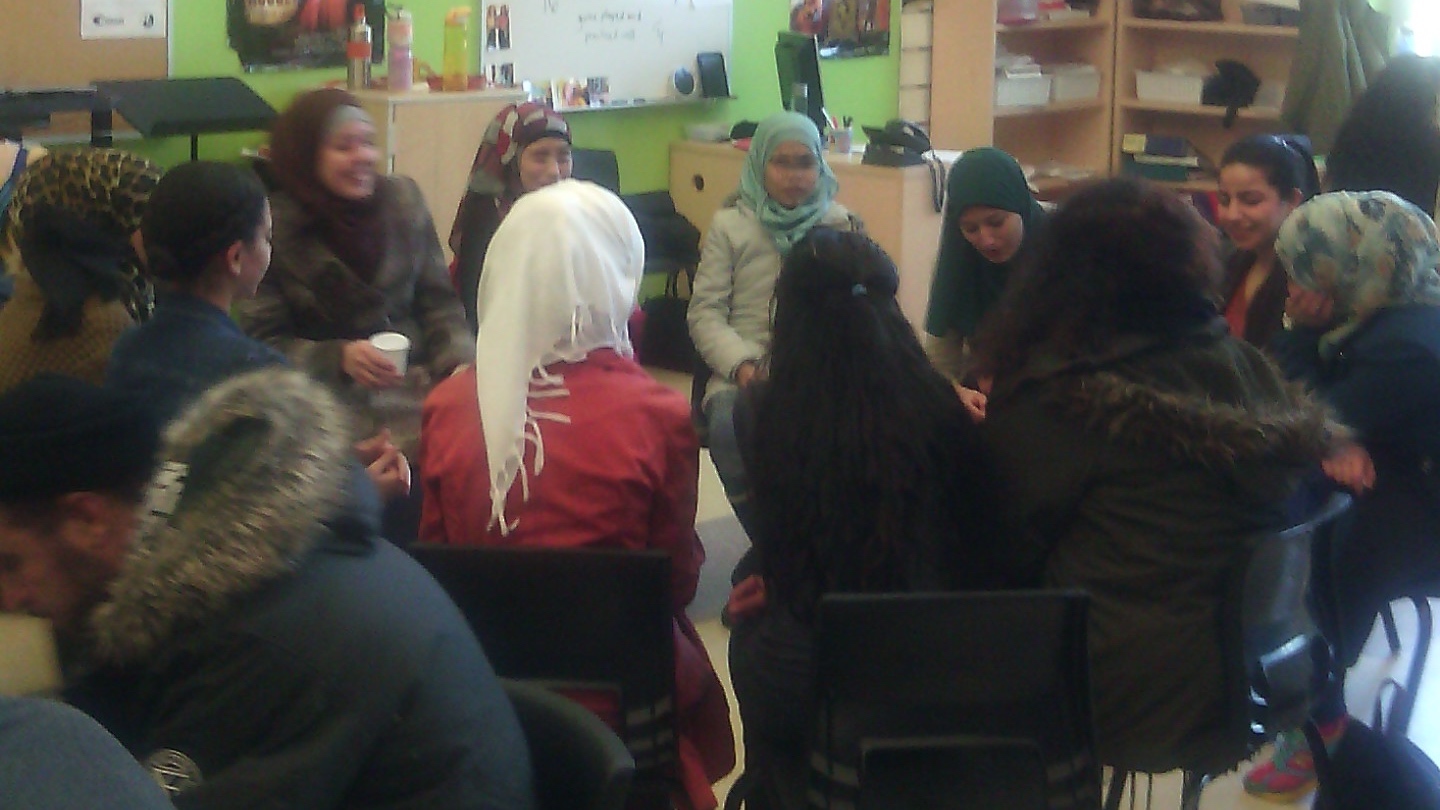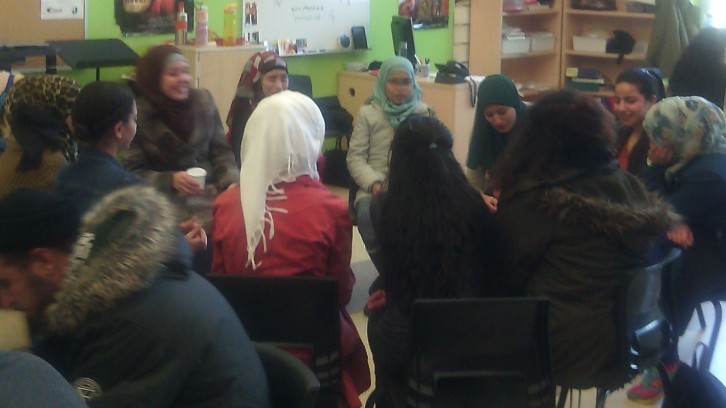Syrian Refugees
Arabic-speaking volunteers needed at Citadel High
With the influx of Syrian students, Halifax school is trying to expand its resources

caption
New Syrian students being welcomed by Citadel High.
caption
New Syrian students being welcomed at Citadel High.Citadel High School is breaking the language barrier to help Syrian students adjust.
The school has put out an announcement on its website calling for more Arabic speakers to come and help newcomers learn the English language.
They would also volunteer to help translate for the Syrian students. Related stories
Private refugee sponsors: ‘This is where you make a difference’
Within the last two weeks, 14 new Syrian students have arrived at Citadel High, with more to come.
“We put that announcement out because we know there are a lot of Arabic speakers in the community,” said Wade Smith, the principal.
In Nova Scotia, Arabic is the second most spoken language after English with more than 6,720 Arabic speakers, according to the 2011 census.
Smith said at first many of the Syrian students used Google Translate on their phones to communicate. The school now uses about 15 of its Arabic speaking students to help as volunteers, but it hasn’t been enough.
Smith said they’ve reached out to the YMCA and the mosques in the community, with former students coming a couple of times a week to help.
“We’ve been working our best to make sure we have enough bodies to constantly help them in the formal aspect of education and to give them the survival language that they need for every day to be successful,” he said.
In February, 572 Syrian refugees came to the province, many to escape the civil war in Syria. More are expected.
Rima Majaess, an English as a Second Language teacher (ESL) who works at the school, co-ordinates the newcomers’ school schedule, assigning students the needed one-on-one English sessions with volunteers.
“Many of these new students come from camps and they were not schooled, coming with a whole load of inflicted misery,” Majaess said. “So the key is to listen and observe.”
She said there is an academic and emotional gap that volunteers can fill.
A big welcome
Maryam Kareem, one of the student volunteers, said she made an effort to be welcoming right from the start.
“I gave them hugs. I was like, ‘I needed to help them,’” she said.
Kareem came from Iraq, a country that has also been through war.
“When I came here, people helped me a lot with my English and my tests, so it is my way of giving back the help they gave me.”
The new Syrian students, with the help of volunteers, will be able to build vocabulary, sequences and full sentences.
In a meet and greet on Friday between classes, Syrian students and their families came to meet the Arabic-speaking volunteers and the school’s staff in an effort to make them feel more comfortable.
They were welcomed with food and applause.
One of the new Syrian students, Minas Ijnadi, who arrived in Halifax in February, said that all she wants to do is focus on learning English so she can decide what to do next after graduating.
Most Syrian students came with their siblings and only one parent showed up.
Amal Saleh, a mother of seven children, came with her two daughters who will be enrolled in the school. They have only been in Canada for 11 days.
“I know that my daughters will have a better future here and I’ll be learning English with them along the way,” said Saleh in Arabic.

